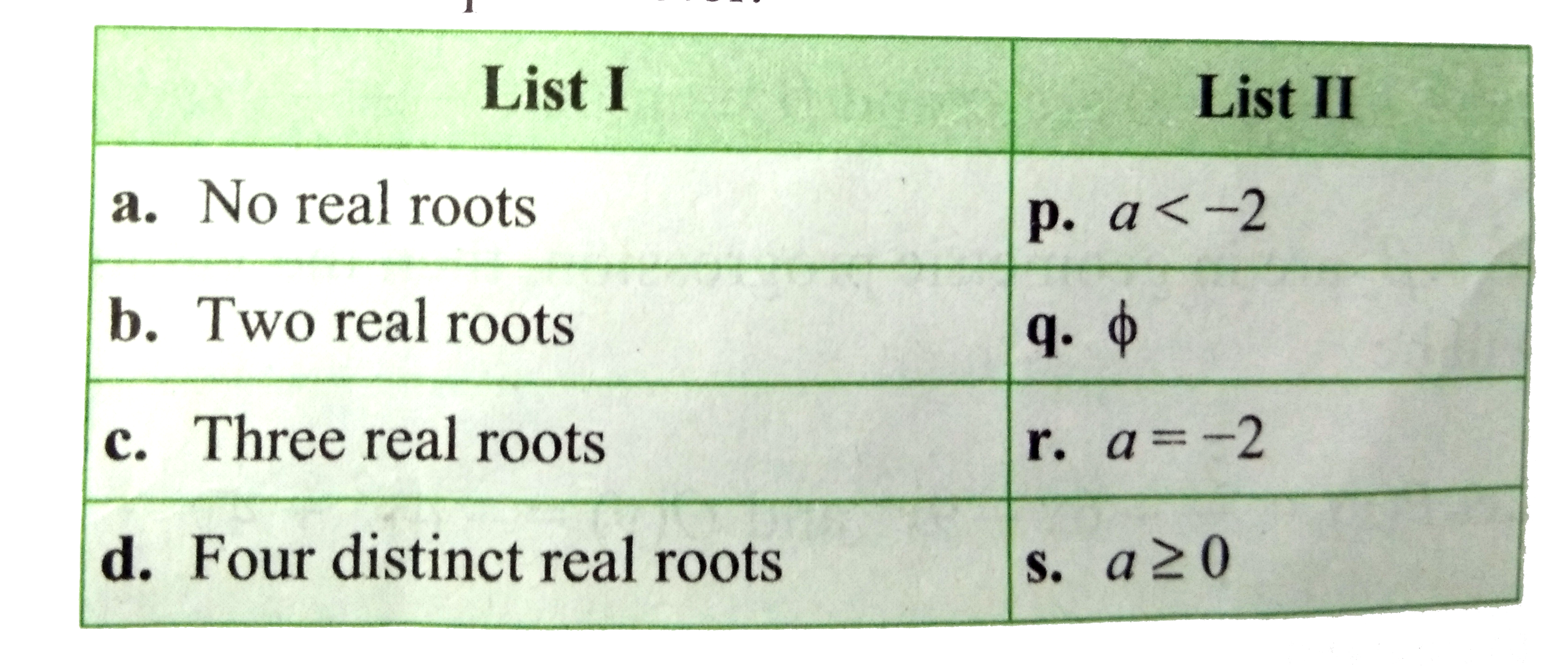If one root of the quadratic equation px2+qx+r=0(p≠0) is a surd √a√a+√a−b, where p,q,r;a,b are all rationals then the other root is -Solution in Tamil
√a√a−√a−b
√a−√a−b√b
a+√a(a−b)b
a+√a(a−b)b
The correct Answer is:1,4
One root √a√a+√a−b
On retionalizing , we get
√a√a+√a−b×√a−√(a)−b√a+√(a)−b
√a(.√a−√a−b)b=a−√a(a−b)b
∴ Other root = a+√(a−b)b
Rationalizing , we get
a+√(a−b)b×a−√a(a−b)a−√a(a−b)
a2−(a2−ab)b(a−√a(a−b))=√a√a−√a−b.
Topper's Solved these Questions
- THEORY OF EQUATIONSBOOK - CENGAGECHAPTER - THEORY OF EQUATIONSEXERCISE - Exercise (Comprehension)
37 Videos
- THEORY OF EQUATIONSBOOK - CENGAGECHAPTER - THEORY OF EQUATIONSEXERCISE - Exercise (Matrix)
6 Videos
- THEORY OF EQUATIONSBOOK - CENGAGECHAPTER - THEORY OF EQUATIONSEXERCISE - Exercise (Single)
89 Videos
- STRAIGHT LINESBOOK - CENGAGECHAPTER - STRAIGHT LINESEXERCISE - JEE Advanced Previous Year
4 Videos
- THREE DIMENSIONAL GEOMETRYBOOK - CENGAGECHAPTER - THREE DIMENSIONAL GEOMETRYEXERCISE - Question Bank
12 Videos
Similar Questions
Consider an unknow polynomial which divided by (x−3) and (x−4) leaves remainder 2 and 1, respectively. Let R(x) be the remainder when this polynomial is divided by (x−3)(x−4).
If equations R(x)=x2+ax+1 has two distint real roots, then exhaustive values of a are.
View SolutionMatch the following for the equation x2+a|x|+1=0 where, a is a parameter.

View SolutionThe value of expression x4−8x3+18x2−8x+2 when x=2+√3
View Solutionabout to only mathematics
View SolutionThe equation of the plane which has the property that the point Q(5,4,5) is the reflection of point P(1,2,3) through that plane, is ax+by+cz=d where a,b,c,d∈N. Find the least value of (a+b+c+d).
View SolutionIf p,q,r in R and the quadratic equation px^(2)+qx+r=0 has no real root,then
View SolutionIf one root of the quadratic equation px^(2)+qx+r=0(p!=0) is a surd (sqrt(a))/(sqrt(a)+sqrt(a-b)) where p,q,r;a,b are all rationals then the other root is -
View SolutionIf the equations px^(2)+qx+r=0 and rx^(2)+qx+p=0 have a negative common root then the value of (p-q+r)=
View SolutionThe equation Px2+qx+r=0 (where p, q, r, all are positive ) has distinct real roots a and b .
View SolutionIF one root of the equation px2+qx+r=0 is the cube of the other, prove that ,rp(r+p)2=(q2−2rp)2.
View SolutionShow that the equations px2+qx+r=0 and qx2+px+r=0 will have a common root if p+q+r=0 or, p=q=r.
View SolutionIf the ratio of the roots of a(x)2+bx+c=0 is same as that of the roots of px2+qx+r=0 then a/p,b/q,c/r are in
View SolutionIf the roots of the equation q2x2+p2x+r2=0 are the squares of the roots of the equation qx2+px+r=0, are the squares of the roots of the equation qx2+px+r=0, then q, p, r are in:
View SolutionIf p,q,r are in A.P. and are positive, the roots of the quadratic equation px2+qx+r=0 are real for :
View SolutionIf one root of the quadratic equation px2+qx+r=0(p≠0) is a surd √a√a+√a−b, where p,q,r;a,b are all rationals then the other root is -
View Solution
